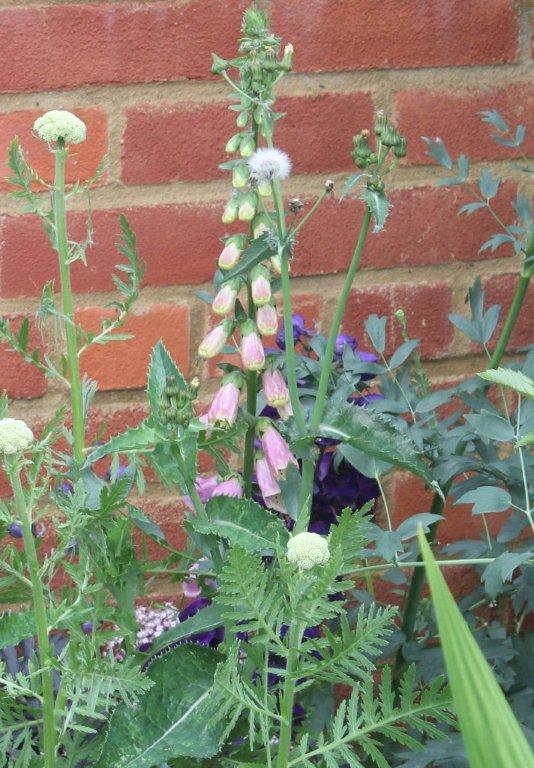I heard someone say recently: ‘I don’t wish to sound like a farmer, but the weather has been dreadful this year’! Whatever your profession, it has more than justified being our favourite topic of conversation. Cold, drought, heat, flooding and incessant rain have all affected our gardens, plants and morale!
High rainfall has encouraged masses of lush, leafy growth and low light has discouraged flowering – some plants in my garden have been in bud for three weeks, waiting for enough warmth and sunlight to encourage them into flower. Mid season staking is also needed, some taller plants like delphiniums and ‘Meadow Rue’, grew monstrous, before being battered by unseasonably strong winds. Leafy crops have grown well, but have been short on flavour and strawberries, while plump, have been tasteless.
On the positive side, gardeners’ report that their lawns have never looked better. While grass is growing rapidly, you can still apply lawn weedkiller; if needed. The whole scenario sums up what gardening has become; extreme weather conditions make it more of a challenge, there are plenty of successes but enough failures to keep you humble!
Early this month I harvested the last of my new potatoes, the crops were good (potatoes don’t worry about sunlight levels, their bounty is underground!) I decided to avoid ‘maincrop’s’ and the possibility of potato blight. Blight is more likely to occur during a ‘Smith period’, when the minimum temperature is 10ºC or above for two days, with a relative humidity of more than 90 per cent for at least 11 hours each day: weather conditions suggested this would happen. Use Bordeaux mixture, as a preventative spray on potatoes and tomatoes – even those that are said to be ‘resistant’.

I was away for several weeks so there has been a lull in vegetable sowing and my tomatoes were not planted until late – though regular removal of the side shoots is already a constant job. Germination has been erratic because the clay soil remained cold, (though lettuce has flourished!) hopefully the weather will change and rapid germination, bring a late feast from my crops. Many fast growing crops can still be sown – lettuce, chard, spinach, early varieties of carrots, spring onions, early peas, beetroot and turnips will all germinate and develop rapidly, given sufficient warmth and moisture. If you sow hardy leafy crops like chard and chicory for its leaves, there will be plenty to harvest in autumn and winter, too.
It is a good time to walk slowly round the garden to check for hidden weeds, it is amazing how they camouflage themselves among the foliage of densely planted borders. (see picture!) Remove perennial weeds, completely, digging up the roots, so they cannot re-appear in the future. Alternatively, kill the roots by drying them (if the sunshine ever appears!) or drown them by leaving them in a bucket of water for several days, before adding them to the compost heap.
Happy gardening!
Matt










